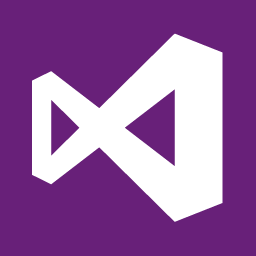Microsoft’s New Tools: A Game Changer for Developers and Data Scientists
November 20, 2024, 4:23 am

Location: United States, California, San Francisco
Employees: 1001-5000
Founded date: 2008
Total raised: $350M
In the fast-paced world of technology, innovation is the lifeblood that keeps the industry thriving. Microsoft has once again stepped into the spotlight with groundbreaking updates to its platforms. The recent announcements at the Ignite conference reveal a treasure trove of new features for Microsoft Fabric and GitHub Copilot. These tools promise to streamline workflows, enhance productivity, and simplify the complexities of artificial intelligence and data integration.
At the heart of these updates is Microsoft Fabric, an integrated analytics platform that acts like a Swiss Army knife for data professionals. It combines data integration, engineering, warehousing, science, and business intelligence into a single cohesive unit. This unification is akin to having a well-organized toolbox, where every tool is at your fingertips, ready to tackle any challenge.
One of the standout features introduced is the new Fabric Databases. Currently in preview, these databases aim to simplify the provisioning process. Imagine a database that sets itself up, ready to go with minimal input. The SQL Databases in Fabric automatically replicate data to the integrated OneLake data lake. This means data is immediately available for analysis, eliminating the lag time that often hampers productivity.
The updates also include a native vector search capability. This technique transforms data into high-dimensional vectors, allowing for more nuanced searches. Instead of merely matching exact terms, it finds items that are contextually similar. This is a game changer for machine learning and semantic search, providing a more intelligent way to retrieve information.
In addition to these features, Microsoft has introduced auto-optimizing and auto-scaling databases. These databases adjust themselves based on usage, ensuring that performance remains high even during peak times. It’s like having a personal assistant who anticipates your needs and adjusts accordingly.
Developers will also benefit from the Fabric Copilot. This tool translates natural language queries into SQL, making it easier for those who may not be fluent in coding. It’s akin to having a translator who speaks both your language and the language of the machine. This feature not only speeds up development but also democratizes access to data manipulation.
Integration with GitHub and Visual Studio Code further enhances the capabilities of Microsoft Fabric. Continuous integration and deployment become seamless, allowing developers to focus on what they do best—creating. The common data estate ensures that governance policies are consistent, reducing the risk of errors and compliance issues.
But the innovations don’t stop there. Microsoft is also making strides in generative AI. The new AI Functions in Fabric allow users to perform tasks like summarization and sentiment analysis with minimal coding. This is a significant leap forward, as it lowers the barrier to entry for those looking to harness the power of AI. Simplified APIs mean that even those with limited technical skills can enrich their applications with AI capabilities.
The Azure AI Agent Service Integration is another noteworthy addition. It simplifies connections to enterprise data sources, such as SharePoint, enabling automation of tasks that would otherwise consume valuable time. This feature acts like a bridge, connecting disparate systems and streamlining workflows.
Moreover, the Open Mirroring capability allows for easier data replication. It creates an exact copy of data from one system to another, ensuring that both systems remain in sync. This is crucial for businesses that rely on real-time data for decision-making.
The OneLake Catalog, now generally available, serves as a centralized hub for managing and governing data within Microsoft Fabric. It’s like a library where every book is easily accessible. Users can explore data with filters for domains, owners, and tags, making it easier to find exactly what they need.
As these tools roll out, they promise to transform the landscape for developers and data scientists alike. The focus on enhancing productivity and simplifying complex processes is a breath of fresh air in an industry often bogged down by technical hurdles.
In the realm of software development, the introduction of Copilot Edits is equally exciting. This feature allows developers to edit multiple files simultaneously, with GitHub Copilot understanding the context of the entire project. It’s like having a co-pilot who not only knows the route but also helps navigate through the twists and turns of coding.
With Copilot Edits, developers can highlight several files and request changes through simple text prompts. The AI takes into account the relationships between files, ensuring that the generated code works harmoniously. This reduces the need for constant file switching, allowing developers to maintain focus and efficiency.
The Working Set concept in Copilot Edits provides developers with control over which files are accessible to the AI. This feature enhances collaboration and ensures that the right information is at hand when needed. The AI even highlights generated changes directly in the code, making it easier to track modifications and verify the AI’s work.
As these features continue to evolve, they represent a significant shift in how developers and data professionals approach their work. The integration of AI into everyday tasks is not just a trend; it’s a revolution. Microsoft’s commitment to enhancing productivity and simplifying complex processes is paving the way for a more efficient future.
In conclusion, the updates to Microsoft Fabric and GitHub Copilot are more than just enhancements; they are transformative tools that empower developers and data scientists. By streamlining workflows and making advanced technologies accessible, Microsoft is setting the stage for a new era of innovation. The future is bright, and with these tools, the possibilities are endless.
At the heart of these updates is Microsoft Fabric, an integrated analytics platform that acts like a Swiss Army knife for data professionals. It combines data integration, engineering, warehousing, science, and business intelligence into a single cohesive unit. This unification is akin to having a well-organized toolbox, where every tool is at your fingertips, ready to tackle any challenge.
One of the standout features introduced is the new Fabric Databases. Currently in preview, these databases aim to simplify the provisioning process. Imagine a database that sets itself up, ready to go with minimal input. The SQL Databases in Fabric automatically replicate data to the integrated OneLake data lake. This means data is immediately available for analysis, eliminating the lag time that often hampers productivity.
The updates also include a native vector search capability. This technique transforms data into high-dimensional vectors, allowing for more nuanced searches. Instead of merely matching exact terms, it finds items that are contextually similar. This is a game changer for machine learning and semantic search, providing a more intelligent way to retrieve information.
In addition to these features, Microsoft has introduced auto-optimizing and auto-scaling databases. These databases adjust themselves based on usage, ensuring that performance remains high even during peak times. It’s like having a personal assistant who anticipates your needs and adjusts accordingly.
Developers will also benefit from the Fabric Copilot. This tool translates natural language queries into SQL, making it easier for those who may not be fluent in coding. It’s akin to having a translator who speaks both your language and the language of the machine. This feature not only speeds up development but also democratizes access to data manipulation.
Integration with GitHub and Visual Studio Code further enhances the capabilities of Microsoft Fabric. Continuous integration and deployment become seamless, allowing developers to focus on what they do best—creating. The common data estate ensures that governance policies are consistent, reducing the risk of errors and compliance issues.
But the innovations don’t stop there. Microsoft is also making strides in generative AI. The new AI Functions in Fabric allow users to perform tasks like summarization and sentiment analysis with minimal coding. This is a significant leap forward, as it lowers the barrier to entry for those looking to harness the power of AI. Simplified APIs mean that even those with limited technical skills can enrich their applications with AI capabilities.
The Azure AI Agent Service Integration is another noteworthy addition. It simplifies connections to enterprise data sources, such as SharePoint, enabling automation of tasks that would otherwise consume valuable time. This feature acts like a bridge, connecting disparate systems and streamlining workflows.
Moreover, the Open Mirroring capability allows for easier data replication. It creates an exact copy of data from one system to another, ensuring that both systems remain in sync. This is crucial for businesses that rely on real-time data for decision-making.
The OneLake Catalog, now generally available, serves as a centralized hub for managing and governing data within Microsoft Fabric. It’s like a library where every book is easily accessible. Users can explore data with filters for domains, owners, and tags, making it easier to find exactly what they need.
As these tools roll out, they promise to transform the landscape for developers and data scientists alike. The focus on enhancing productivity and simplifying complex processes is a breath of fresh air in an industry often bogged down by technical hurdles.
In the realm of software development, the introduction of Copilot Edits is equally exciting. This feature allows developers to edit multiple files simultaneously, with GitHub Copilot understanding the context of the entire project. It’s like having a co-pilot who not only knows the route but also helps navigate through the twists and turns of coding.
With Copilot Edits, developers can highlight several files and request changes through simple text prompts. The AI takes into account the relationships between files, ensuring that the generated code works harmoniously. This reduces the need for constant file switching, allowing developers to maintain focus and efficiency.
The Working Set concept in Copilot Edits provides developers with control over which files are accessible to the AI. This feature enhances collaboration and ensures that the right information is at hand when needed. The AI even highlights generated changes directly in the code, making it easier to track modifications and verify the AI’s work.
As these features continue to evolve, they represent a significant shift in how developers and data professionals approach their work. The integration of AI into everyday tasks is not just a trend; it’s a revolution. Microsoft’s commitment to enhancing productivity and simplifying complex processes is paving the way for a more efficient future.
In conclusion, the updates to Microsoft Fabric and GitHub Copilot are more than just enhancements; they are transformative tools that empower developers and data scientists. By streamlining workflows and making advanced technologies accessible, Microsoft is setting the stage for a new era of innovation. The future is bright, and with these tools, the possibilities are endless.
